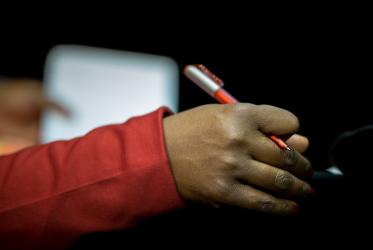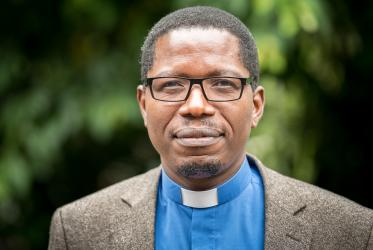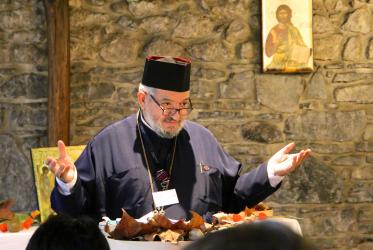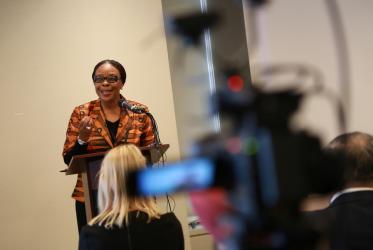Displaying 1 - 20 of 20
In Zambia, foreign investors complicate “economy of life”
06 September 2017
GEM School: integrating theology and economics
05 September 2017
Zambia: “On HIV, we do not compete. We work together.”
20 October 2016
Kenya: Voice of faith communities crucial in overcoming HIV
14 October 2016
Person with disability shares reflection on AIDS conference
10 December 2015
Overcoming discrimination to address HIV in Zimbabwe
11 November 2015
Churches have a special role to play in HIV response
18 November 2014
Churches engage in development dialogue on Africa
06 March 2013











